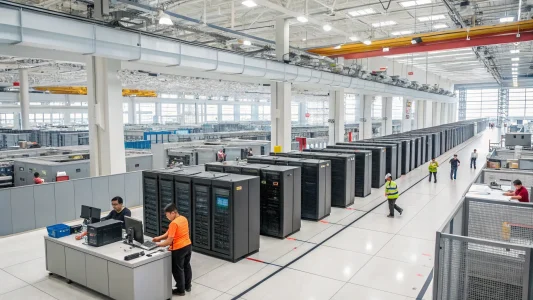The biggest private employer in the country, Walmart, is proactively preparing for the inevitable effects of artificial intelligence (AI) on its employees. Executives at the company are openly admitting that AI will change the nature of work, automate some tasks, and necessitate major changes.
In one of the most straightforward remarks made by a significant corporate figure, Walmart CEO Doug McMillon said: “It’s very clear that AI is going to change literally every job.”
With companies like Ford, JPMorgan Chase, and Amazon predicting job losses, this admission coincides with a larger industry discussion about the disruptive potential of AI. These businesses are advising others to get ready for the change in the workforce.
Walmart CEO: “AI is going to change literally every job”
McMillon stresses that Walmart will eliminate some jobs, but it will also create new positions. “Maybe there’s a job in the world that AI won’t change, but I haven’t thought of it,” he said. In order to assist staff in navigating the transition, the company has responded by investing in workforce training.
In an effort to help employees cope with the changes, executives are keeping tabs on which jobs are expanding, contracting, or staying the same. “Our goal is to create the opportunity for everybody to make it to the other side,” McMillon said.
Over the next three years, Walmart plans to keep its current global workforce of about 2.1 million people, though the kinds of jobs it offers will change. The Chief People Officer of the organization, Donna Morris, admitted that the details of this change are still unknown: “We’ve got to do our homework, and so we don’t have those answers.”
The business has already integrated AI-powered solutions into internal operations, supply chain management, and customer service. Walmart has been using AI to improve its supply chain and has created chatbots for customer interactions. Daniel Danker from Instacart was recently hired by Walmart to spearhead its AI initiatives, with an emphasis on workforce adaptation and making sure staff members have new skills.
The company has already seen changes as a result of the AI transition, including the loss of jobs in automated warehouses. Nonetheless, Walmart has established new positions like “agent builders,” who are in charge of creating AI tools for retail operations. Additionally, the company is hiring more people for high-touch customer positions like truck drivers and bakery attendants.
AI will impact jobs
Walmart’s AI strategy is in line with more general industry trends, which show that businesses are using AI more and more to streamline operations. For instance, Syngenta’s AI-powered “lighthouse” projects in supply chain management and research and development are designed to optimize workflows. In the next 18 to 36 months, AI will significantly disrupt the labor market, according to OpenAI economist Ronnie Chatterji.
Julie Sweet, the CEO of Accenture, and other executives have emphasized the need for businesses to retrain their workforce for the AI era. “Artificial intelligence is going to replace literally half of all white-collar workers in the U.S.,” warned Ford CEO Jim Farley this summer.
Featured Image Credit: Erik Mclean; Pexels: Thank you!














